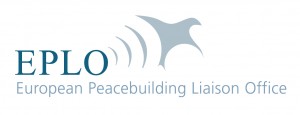UNSCR 1325 in the EU member states
Background information
EPLO’s Working Group on Gender, Peace and Security (GPS) monitors the implementation of UNSCR 1325 and other related commitments on Women, Peace and Security (WPS) in the EU and EU Member States.
What is UNSCR 1325?
United Nation Security Council Resolution 1325 (UNSCR 1325) was adopted in 2000, recognising the distinct experiences and contributions of women in the context of peace and security. The UNSCR 1325 calls for the full and equal participation of women and the integration of a gender perspective into all peace and security initiatives. It covers the interlinked thematic areas of participation, protection, prevention and relief and recovery.
Since then, several other Security Council Resolutions were adopted, to complement UNSCR 1325. On the UN Women dedicated webpage, you will find information on resolution: 1820 (2008), 1888 (2009), 1889 (2009), 1960 (2010), 2106 (2013), 2122 (2013), 2242 (2015), 2467 (2019) and 2493 (2019).
On the Security Council Resolution webpage, you can find additional information about the integration of WPS issues into other Security Council Resolutions.
National Action Plans
What is a National Action Plan?
United Nation Security Council Resolution 1325 (UNSCR 1325) is wide in scope and its mandate offers little guidance as to what the exact steps that should be taken for implementation.
The implementation of UNSCR 1325 and other related Women, Peace and Security (WPS) commitments is the responsibility of each UN Member State. One of the ways in which UN member states have tried to move forward on the implementation of the UNSCR 1325 (and related commitments) is through the creation of action plans or strategies for implementation.
National Action Plans in the EU
Databases have been developed by civil society organisations and universities to track the global development of WPS National Action Plans (NAP):
- WPS National Action Plans database compiled by the London School of Economics (LSE) Centre for Women, Peace and Security, and the University of Sydney
- WPS National Action Plans database and analysis compiled by the Women’s International League for Peace and Freedom (WILPF)
EPLO advocacy activities
EPLO participates in the EU informal Task Force on UNSCR 1325, where gender focal points from EU member states gather regularly to share concerns and lessons learnt in the implementation, monitoring and evaluation of their NAPs.
While EPLO does not currently follow the development of NAP’s closely, several analyses were published in the past:
- Between February and June 2016, EPLO collected country case-study contributions from civil society organisations, independent experts or academia involved in the NAP processes to provide an overview on the NAPs in the EU. 18 contributions were received: Austria, Estonia, Finland, Germany, Ireland, Italy, Lithuania, the Netherlands, Portugal, Spain, Sweden, the United Kingdom and Norway, Switzerland, US, Cyprus (case study on the peace process), Slovenia (case study on the migration crisis), Northern Ireland (case study on the implementation of UNSCR 1325 after the peace agreement).
- In November 2013, EPLO published an updated version of its publication on case studies of policies and practices on WPS in Europe: UNSCR 1325 in Europe: 20 case studies of implementation.
- In July 2011, EPLO published a table comparing NAPs in Europe.
- In September 2010, a CSO position paper on the Europe-wide implementation of UNSCR 1325 was published. The position paper entitled 10 Points on 10 Years UNSCR 1325 in Europe includes 10 recommendations to ensure the implementation of WPS commitments, at the EU- and EU Member State-levels. The paper was coordinated by EPLO and more than 80 civil society organisations and networks aligned themselves with the recommendations.
- In June 2010, EPLO published 21 case studies on women, peace and security (WPS) policies and practices in Europe, focusing on NAPs for the implementation of UNSCR 1325 and other related WPS commitments.
